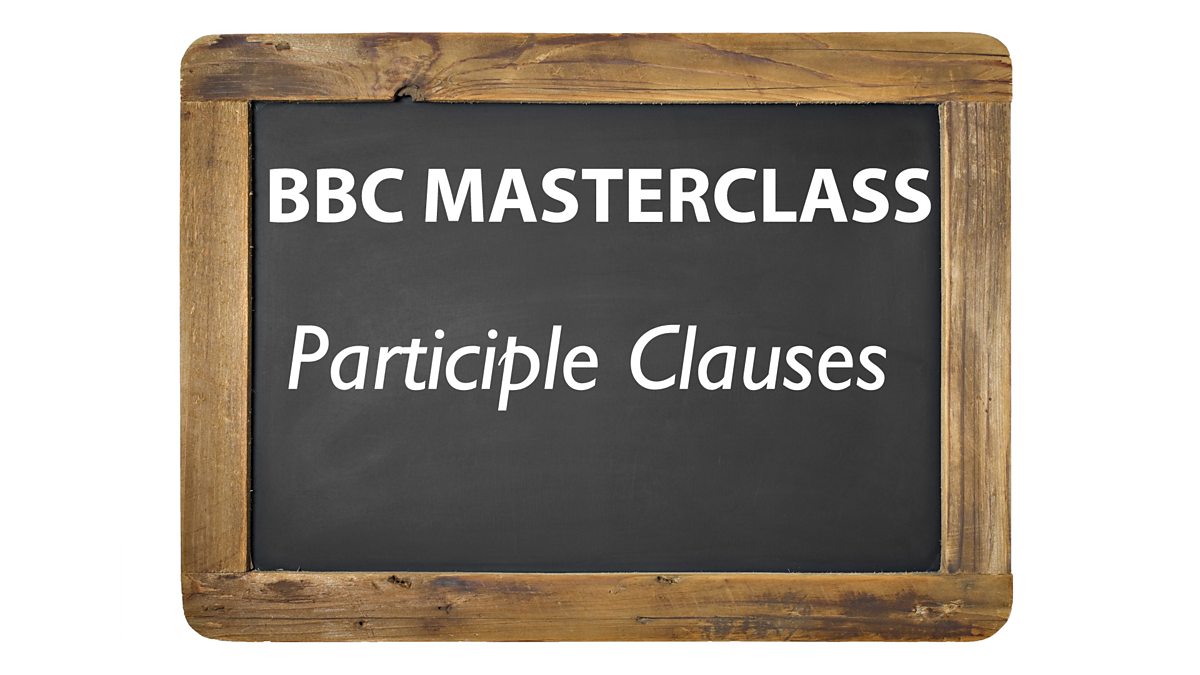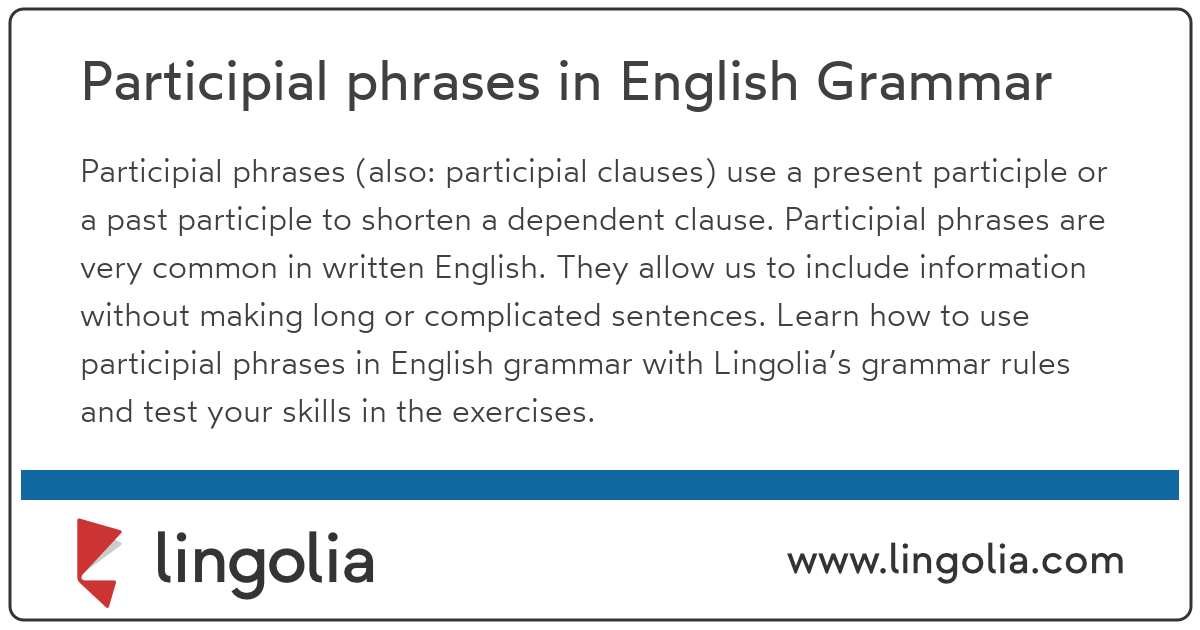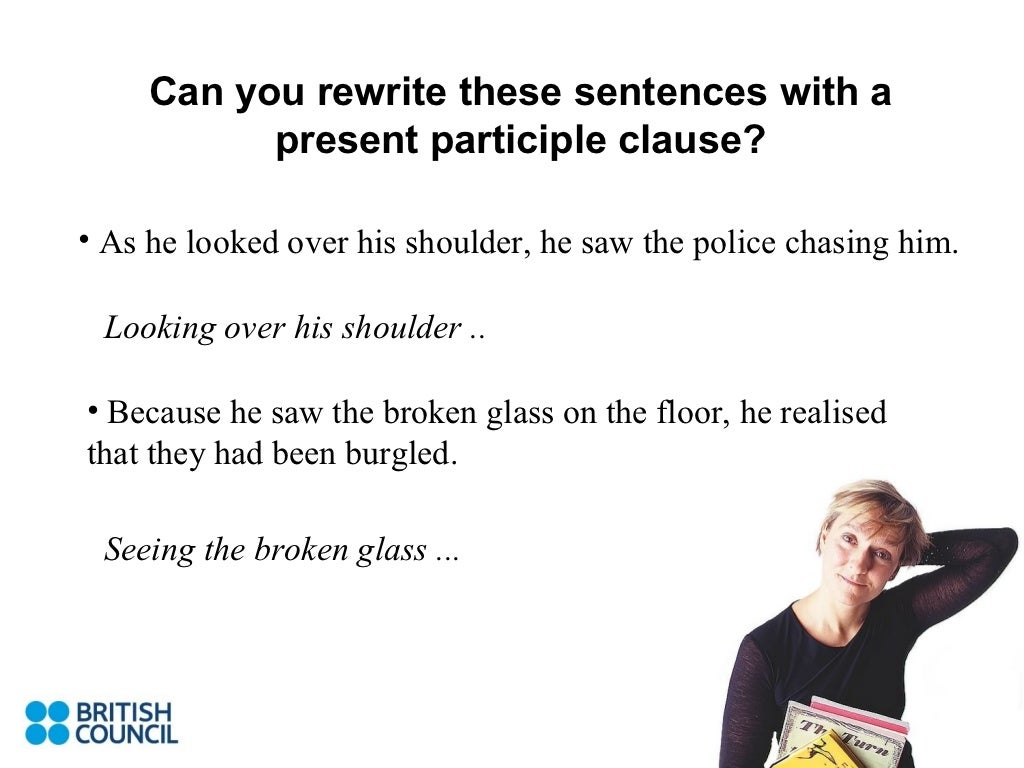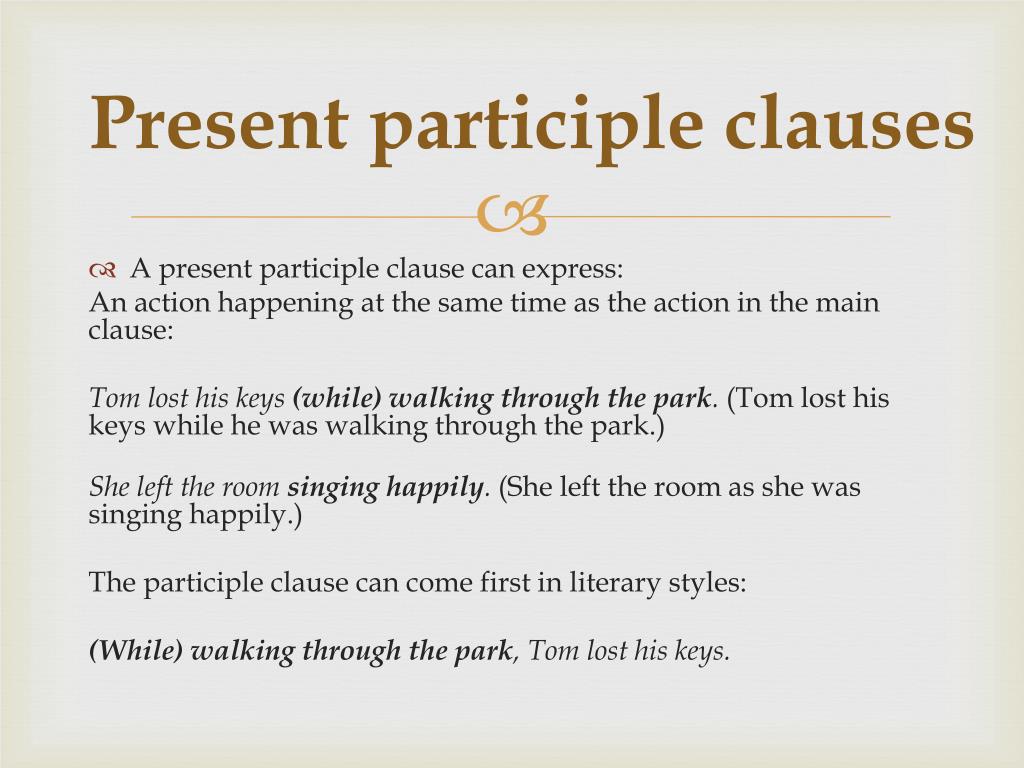
BBC BBC Learning English, 170123_Participle_clauses.mov
Click here for information about participle adjectives. We can use participle clauses after a noun in the same way as relative clauses. This gives more information about the noun. We sometimes call this a 'reduced relative clause'. 1: A present participle (verb + ing) can be used in the same way as an active relative clause:

Participle Clauses Learn english, Clause, Learning
http://www.bbclearningenglish.com Participle clauses use a present or past participle in a clause instead of a typical subject + verb form. There are different kinds of participle.

Participle clauses BBC English Class in 2020 English class, Bbc english, Learning english online
35K views, 303 likes, 28 loves, 9 comments, 61 shares, Facebook Watch Videos from BBC Learning English: 'Looking for a great lesson, I found this one!' Did you know 'participle clauses' in English.

Participle Clauses (English) Subject (Grammar) Sentence (Linguistics)
Participle clauses Present and past participles can be used to avoid repetition and join sentences together. Present participle examples I was shaving. I cut myself

Participle Clauses grammar guide English ESL powerpoints
A participle clause is a subordinate clause which begins with a participle. They act like adverbs and are linked to the main clause of a sentence. They usually show things like event.

PARTICIPLE CLAUSES English ESL powerpoints
A participle is a form of a verb. A participle clause is a subordinate clause which begins with a participle. They act like adverbs and are linked to the main clause of a sentence. They usually.

Participle Clauses English ESL worksheets pdf & doc
Past participle (verb-ed) clauses can be used without a subject pronoun and auxiliary in shortened forms of passive relative clauses. The dog hit by the car wasn't hurt. = The dog that was hit by.

Participle Clauses YouTube
Participles are a verb form used in passive sentences and to form perfect and progressive aspect. There are two participles in English, the present participle (-ing) and the past participle (-ed). Example 'I'm leaving', 'we wanted to go', 'a very boring film' and 'they were really excited by the news' are examples of participle forms.

Participle Clauses in English Grammar
Session 2. Present and past participles can be used for more than making verb forms. In some situations they can be used without subjects and auxiliaries. Having read this, if you want to learn.

BBC Radio 6 Minute Grammar, ing and ed (Participle) Clauses
Improve your grammar by using these medium grammar resources from BBC Learning English. This is the medium grammar reference guide . Homepage.. Participle clauses (-ing and -ed) Intensifiers.

Participle clauses
Podcast Listen now -ing and -ed (Participle) Clauses Catherine and Callum explain all about present and past participle clauses. Download Choose your file Higher quality (128kbps) Lower.

English grammar Using Participle Clauses Your English Web
A participle clause is a subordinate clause which begins with a participle. They act like adverbs and are linked to the main clause of a sentence. They usually show things like event.

Participle Clauses general gramma… English ESL powerpoints
Here are some examples of participle clauses in sentences. Having gone through difficult times, Jonas remained strong. Delighted by his father's coming, James cooked a hearty meal for the family. The underlined clause in each sentence is the participial clause. Notice how both sentences show relationships between clauses.

Participle Clauses Exercise PDF
Grammar explanation Participle clauses enable us to say information in a more economical way. They are formed using present participles ( going, reading, seeing, walking, etc.), past participles ( gone, read, seen, walked, etc.) or perfect participles ( having gone, having read, having seen, having walked, etc.).

What is a participle teragai
Participle clauses, with -ing particularly, can be used after various conjunctions and prepositions, such as: when, while, before, after, on, without, instead of. Note the following examples:.
Participle Clauses TED IELTS
Did you know 'participle clauses' in English often show things like event order, time, cause and effect? Watch this episode of BBC English Masterclass to find out how to use them in English. You'll find a summary and a quiz here: https://bbc.in/306JxAk